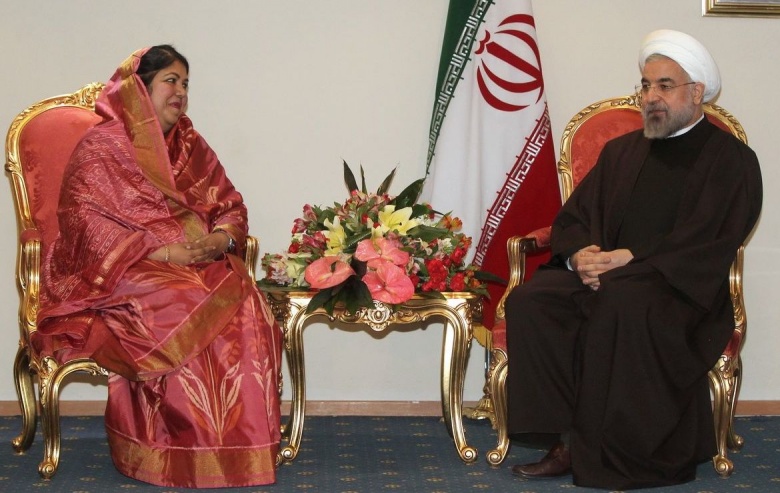As the world comes to terms with the Iran nuclear deal, there has been plentiful analysis on its impact across the world. The focus largely has been on the impact in the Middle East. Its impact on the Indian subcontinent has also been researched and commented upon, with a specific focus on how India and Pakistan may benefit.
However, little has been said about the nuclear deal’s impact on Bangladesh. Oftentimes, news on Bangladesh is dominated by depressing topics such as corruption, floods and heart-wrenching human tragedies such as the Rana Plaza garment factory collapse. All of this gives a bleak picture of Bangladesh. Analysis of the Iran deal’s effect on Bangladesh is an opportunity to buck the trend of disheartening news stories and to provide some analysis of why this deal can benefit Dhaka in such a positive manner. The successful execution of the deal holds promise for Bangladesh economically and in other sectors.
How does this deal affect relations between Bangladesh and Iran? Bangladesh’s foreign ministry welcomed the agreement: “Bangladesh firmly believes in nuclear disarmament and nonproliferation and peaceful uses of nuclear energy.” This is not surprising, keeping in mind the history of cooperation that these countries share, and particularly in the economic sphere. Bangladesh-Iran trade has increased by over 36 percent from 2005 to 2013. Exports to Iran increased from $38.09 million to $75.41 million in that time period—a mammoth 98-percent increase in those eight years.
In 2013, the Iran-Bangladesh Joint Economic Commission agreed to increase trade volume two- or threefold in the next three years. More recently, the head of Iran’s chamber of commerce, mines, industries and agriculture called for the establishment of an Iran-Bangladesh trade committee to further increase trade cooperation. Members of the Federation of Bangladesh Chambers of Commerce and Industry (FBCCI), Bangladesh’s business owners’ representative organization, are scheduled to visit Tehran to discuss ways to broaden economic ties. Members of the FBCCI hope to take advantage of an Iranian economy, which will gain $100 billion from sanctions relief. As for Iran, its ambitions are clear regarding Bangladesh: It wishes to be a bigger economic partner and to increase its prominence. Increased cooperation with Dhaka may signal Iran’s wish for greater cooperation on the Indian subcontinent.
Keeping the Iran-Bangladesh economic history and potential in mind, how will the Iran deal affect relations between these two countries into the future? Mohammad Javad Zarif, Iran’s chief negotiator for the deal who also happens to be Iran’s foreign minister, recently visited Bangladeshi prime minister Sheikh Hasina and Bangladesh’s foreign minister in Dhaka. The agenda contained, among other things, measures to restore Bangladesh’s trade with Iran on jute, which has suffered ever since Iran was subjected to sanctions for its nuclear program.
On his trip, Zarif acclaimed Iran as a trustworthy source of energy of which Bangladesh should take full advantage. More broadly, in a press conference Zarif asserted that “unjust sanctions” against Iran will now be lifted, thereby strengthening the bond between the two countries. Zarif also announced a visit of Bangladesh’s minister of finance to Tehran in the near future, further emphasizing the focus on economic ties. Zarif, incidentally, also spoke of cooperation with Dhaka on counterterrorism.
Meanwhile, Iran’s ambassador to Bangladesh has also indicated that Tehran is interested in importing clothes and agricultural products from Dhaka—both of which will contribute toward the previously stated goal of increasing trade by two- or threefold. Bangladesh, with its large and young population, also wishes to export manpower to Iran, thereby giving another dimension to trade between the two countries. Tehran has assured Dhaka of looking into this once sanctions are eased.
Read More at National Interest









